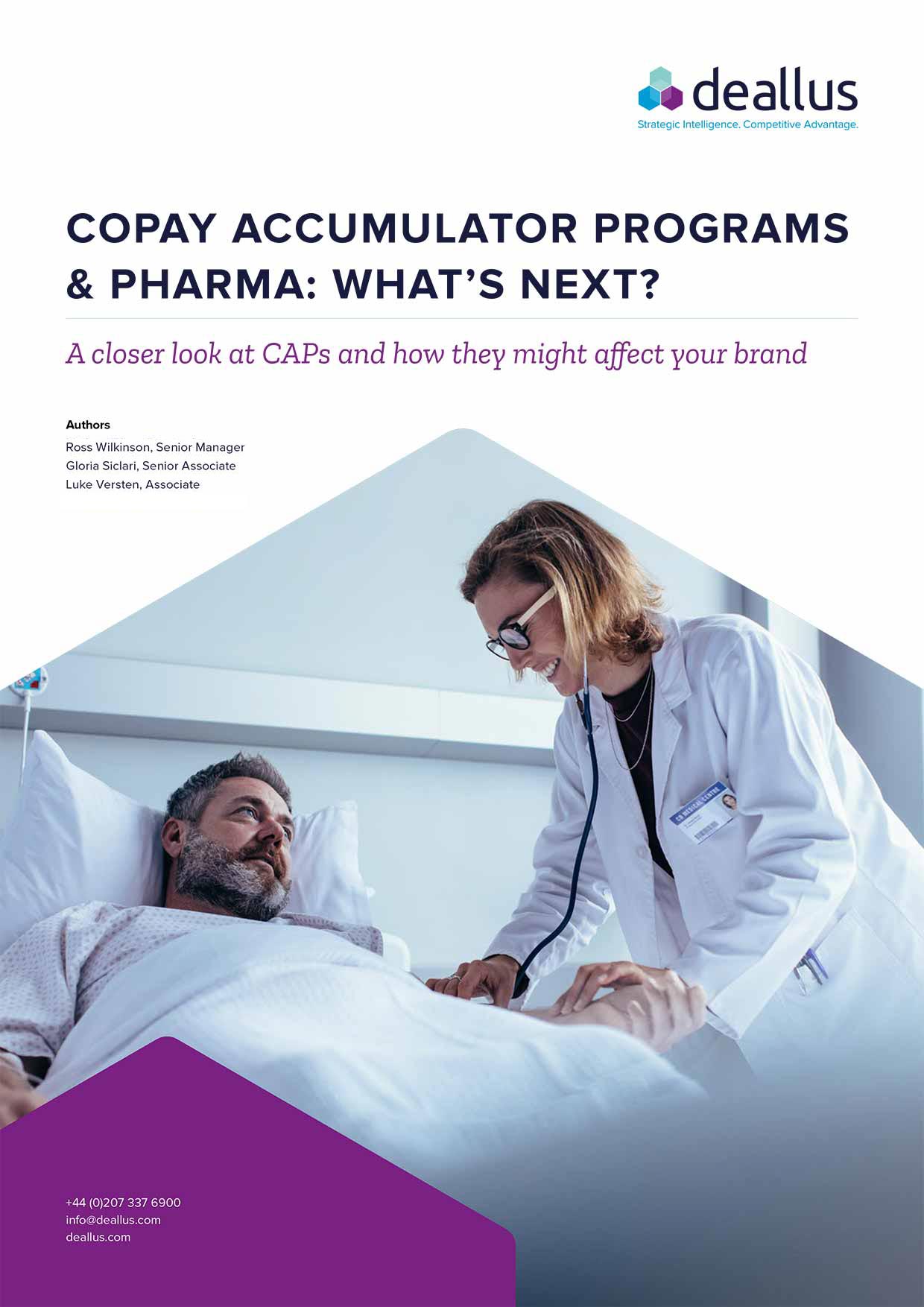Copay Accumulator Programs & Pharma: What’s Next?
A closer look at CAPs and how they might affect your brand
Dynamics between pharma and the market-based healthcare sector it serves have invariably been complex, with one of the biggest drivers of that complexity being effective management of patient demand and payer systems.
And over time, payer business models are becoming increasingly convoluted. The newest stratagem in this push and pull is the copay accumulator program, or CAP. First introduced in 2018, these programs are now rapidly being rolled out by payers, with data showing that nearly one-third of commercially insured patients are now directly impacted by CAPs – enrolled either in plans that have implemented copay accumulator adjustment or closely-related copay maximizers.
The CAP, with its differing and confusing scopes of application, is one more contour to successfully navigate when attempting to balance clinical and economic value in product development and commercialization decisions.
What is a CAP?
Copay accumulator programs (CAPs) permit employers and PBMs to exclude copay assistance from the calculation of a patient’s annual deductible, effectively negating the value of the copay assistance for said patient.
Prior to the introduction of the CAP, payers sought to guide patients toward less expensive treatments by making them pay a higher portion of a drug’s costs. Drug-makers responded by increasing the financial aid they offer, in the form of copay assistance, to shield consumers from these rising expenses. Payers, however, have now turned the tables on Pharma. They are using CAPs to leverage the value of the manufacturer copay coupon, in turn increasing beneficiary cost-sharing amounts to meet deductible amounts.
You may also be interested in…
GlobalData announces acquisition of market leading competitive intelligence solutions provider Deallus
GlobalData Plc, a London-based leading data and analytics company, has completed the acquisition of Deallus from private equity firm Archimed. Deallus is a London-based market-leading competitive intelligence solutions provider focused on the global life sciences sector.
Uncertainty is here to stay
Another turbulent year is ending, marked by economic, geopolitical, and technological shifts. With six decades behind me, I embrace this uncertainty as the norm. What does this mean for corporate decisions, especially in Pharma?
Season’s Greetings
From all of us at Deallus we wish all our clients, colleagues and friends a very peaceful and prosperous festive season.
The Migraine unveiling: Bringing the invisible disability to light
Globally, headache disorders affected approximately 40% of the population, or 3.1 billion people in 2021. A migraine attack goes beyond a severe headache; it is a constellation of symptoms that may include neck pain, nausea, dizziness, visual disturbances and sensitivity to light, sounds and smell among a variety of other manifestations.






